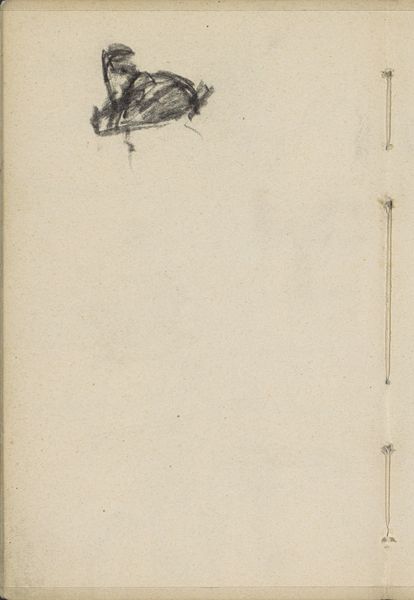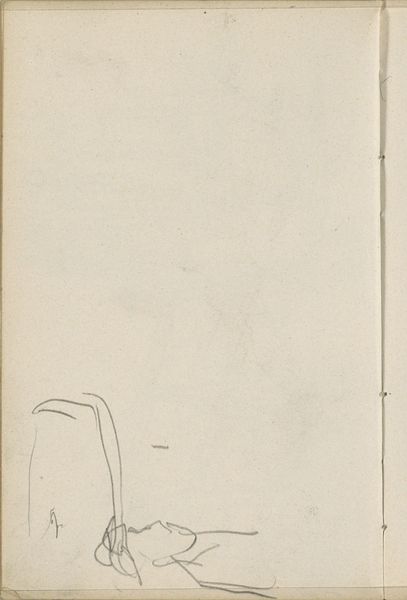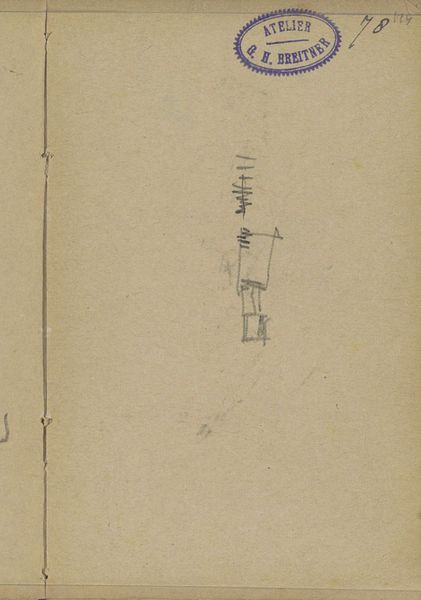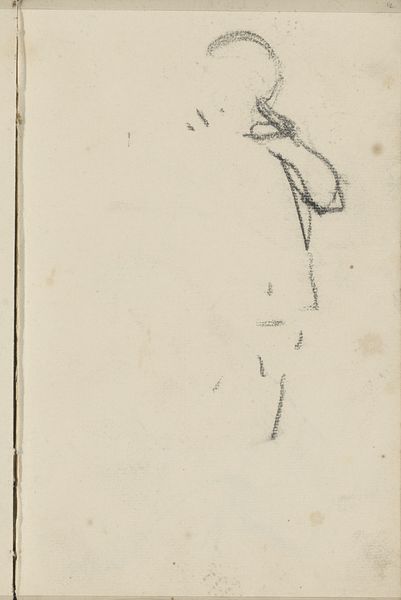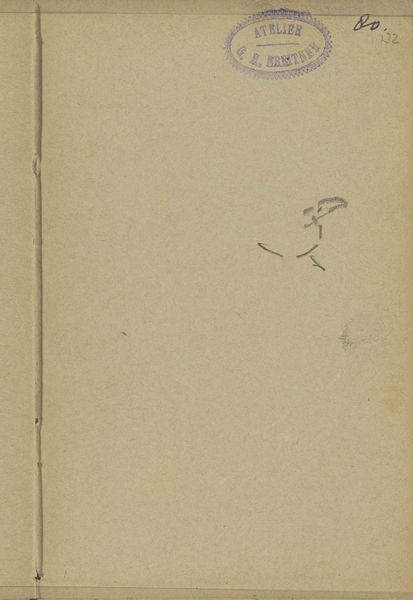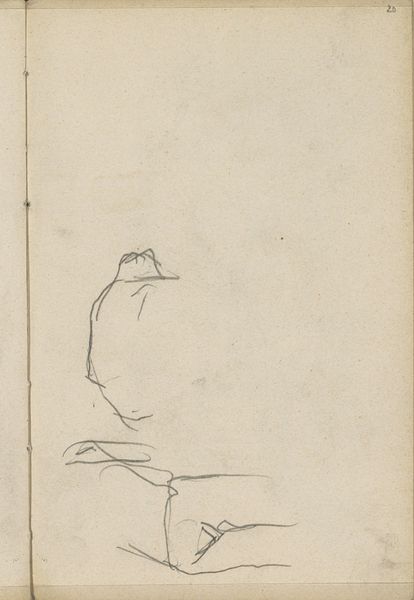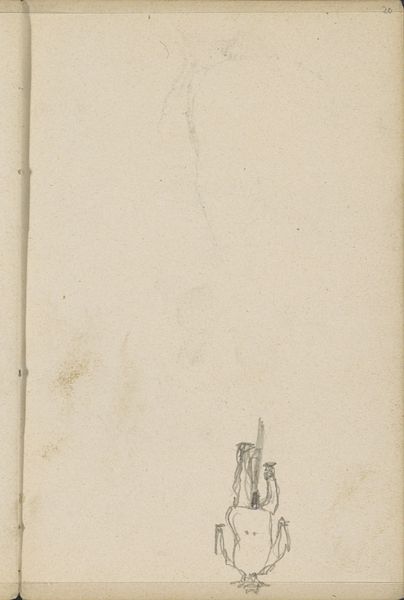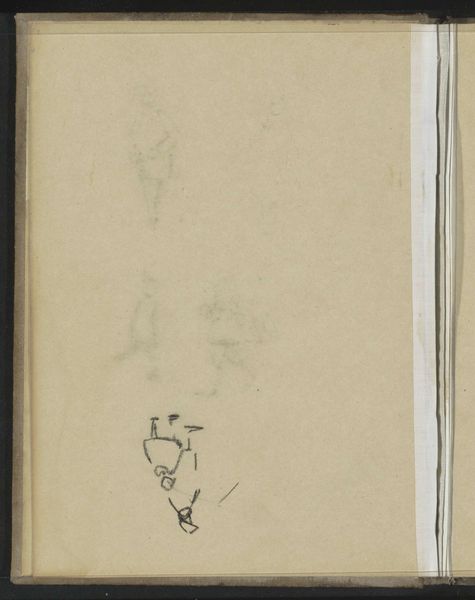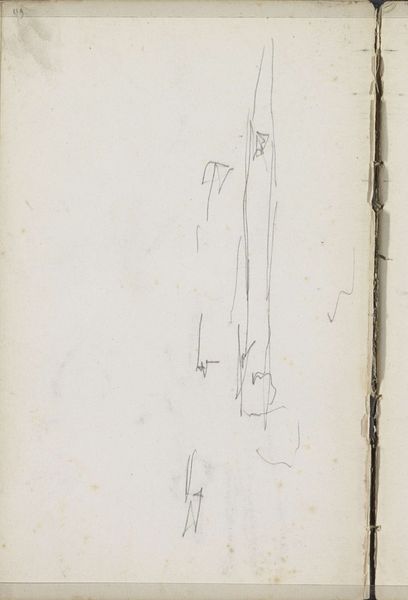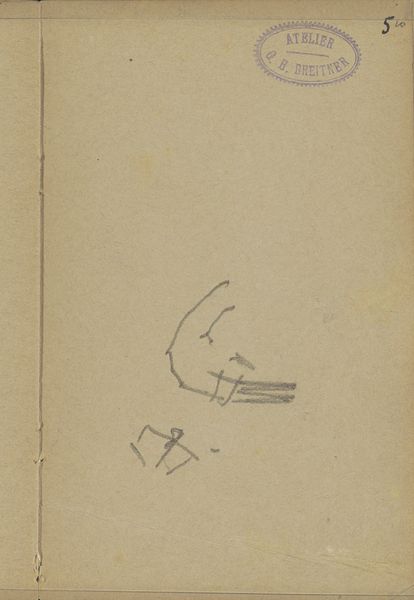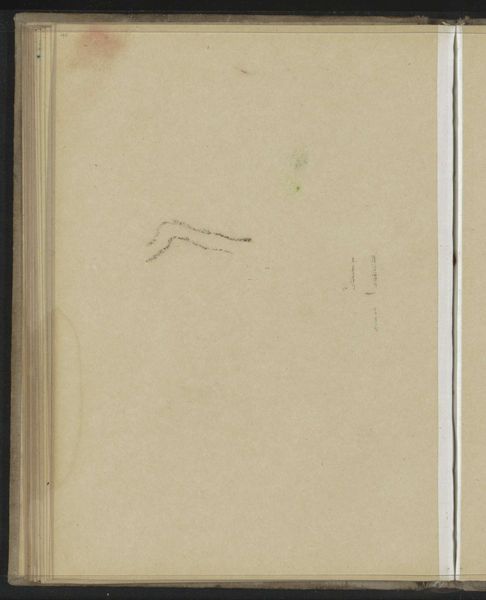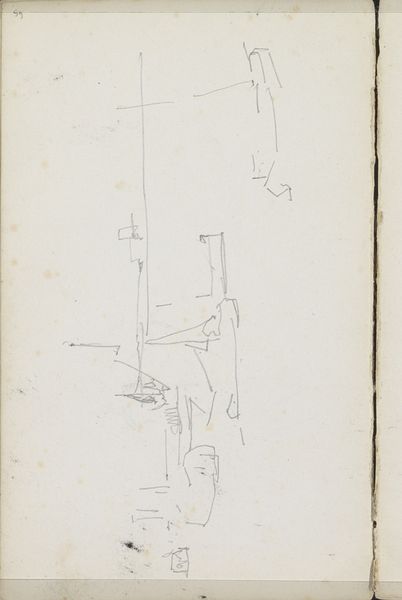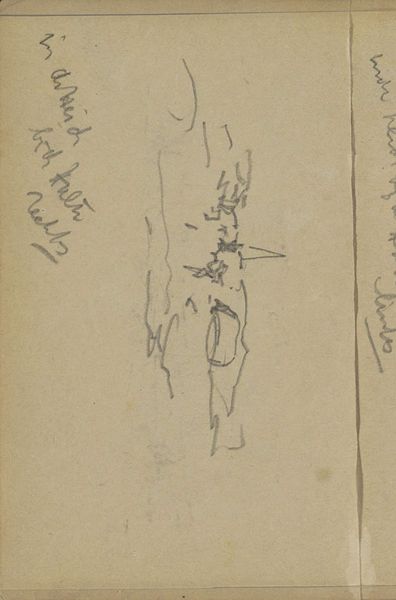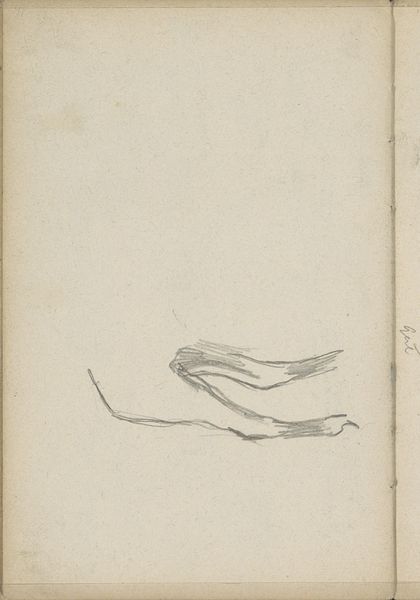![begonnene Skizze (Initial Sketch) [p. 51] by Max Beckmann](/_next/image?url=https%3A%2F%2Fd2w8kbdekdi1gv.cloudfront.net%2FeyJidWNrZXQiOiAiYXJ0ZXJhLWltYWdlcy1idWNrZXQiLCAia2V5IjogImFydHdvcmtzLzIzNWY1YjY5LWQyMTQtNDk5Mi1iZmYyLTJiNWQ4NmQ5ZTNmYi8yMzVmNWI2OS1kMjE0LTQ5OTItYmZmMi0yYjVkODZkOWUzZmJfZnVsbC5qcGciLCAiZWRpdHMiOiB7InJlc2l6ZSI6IHsid2lkdGgiOiAxOTIwLCAiaGVpZ2h0IjogMTkyMCwgImZpdCI6ICJpbnNpZGUifX19&w=828&q=75)
drawing, paper, ink, graphite
#
drawing
#
figuration
#
paper
#
ink
#
abstraction
#
graphite
Dimensions: page size: 16.3 x 10 cm (6 7/16 x 3 15/16 in.)
Copyright: National Gallery of Art: CC0 1.0
Editor: This is "begonnene Skizze (Initial Sketch) [p. 51]" by Max Beckmann, a drawing using ink and graphite on paper. The figure feels very vulnerable to me, so exposed and fragile. How do you interpret this work? Curator: That's a sensitive reading. For me, I immediately consider the sociopolitical climate in which Beckmann was working. Think about the context of early 20th-century Germany. The rise of expressionism, followed by the trauma of World War I… do you think that feeling of vulnerability might also reflect the broader societal anxieties of the time? Editor: That's an interesting point. It makes me think about how the individual experience is always shaped by larger historical forces. I was focusing on the isolated figure, but maybe it's not so isolated after all. Curator: Exactly! Beckmann and his contemporaries were grappling with questions of identity in a rapidly changing world, where traditional structures were collapsing. Consider the sparseness of the line—how does that affect your interpretation of the figure’s strength or lack thereof? Is there resistance embedded here? Editor: The thin lines do emphasize its fragility. Almost as if the figure is disappearing, fading from view. So you think he is protesting? Curator: Perhaps not active resistance, but bearing witness. Even incomplete, this initial sketch captures the uncertainty and alienation felt by many during that era. Editor: So, seeing art as a response to society gives the picture extra power. I have to be conscious of how identity markers can make someone seem defenceless in certain cultures, and that art like this can expose inequality. Curator: Precisely. It pushes us to recognize these echoes in contemporary society too. It allows to not repeat past mistakes, like this idea that identity is monolithic, or one culture is more worthy of respect than another. Editor: Thanks, I feel like I'm leaving this discussion seeing that simple drawing through a completely new and thought-provoking lens.
Comments
No comments
Be the first to comment and join the conversation on the ultimate creative platform.
